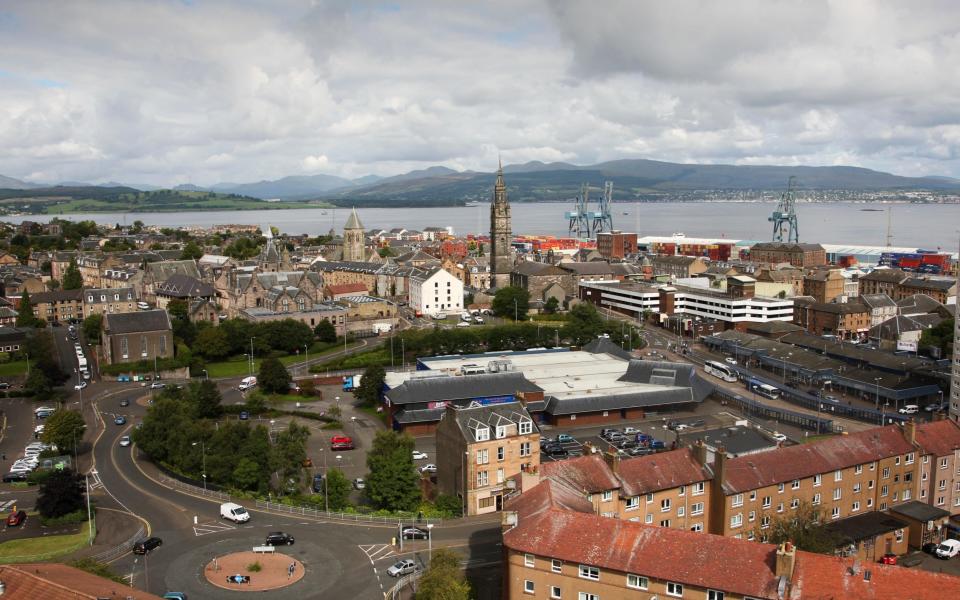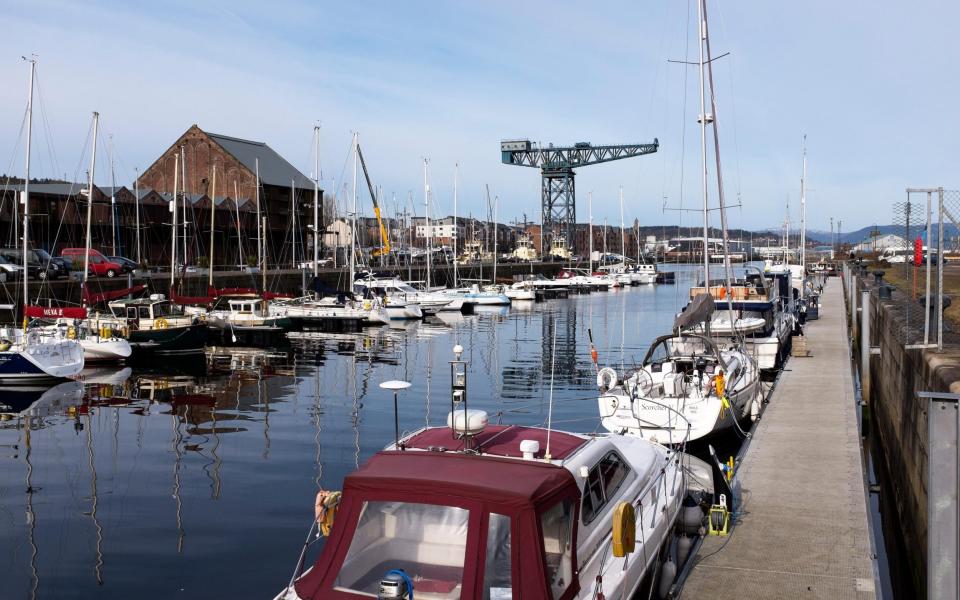Scotland has ‘whitewashed’ its slave trade role out of history exams to ‘vilify’ the English

Scotland’s role in the slave trade has been whitewashed out of exams with pupils taught to “vilify” the English, a leading historian has claimed.
Scotland’s exam board has refused to include Glasgow in a list of ports deemed crucial to Britain’s involvement in the transatlantic slave trade despite the city importing vast quantities of tobacco, rum and sugar from the colonies.
Only the English ports of Liverpool and Bristol were mentioned in the course’s description for staff teaching students sitting National 5 history - Scotland’s equivalent to GCSEs.
Academic Neil McLennan, a former president of the Scottish Association of Teachers of History had repeatedly asked the Scottish Qualifications Authority (SQA) and Nicola Sturgeon’s cabinet for Glasgow to be included “as a city associated with slavery gains”.
He said: “It is part of our reconciliation with a bloody history which England, Scotland and other European countries, we are all guilty of.
“Unless we acknowledge it in our education system we will never cleanse the demons of the past.
“That is a good example of the vilification of English history without presenting the totality of it, that is a real concern.”

Sir Tom Devine, Scotland’s most eminent historian, said Scotland had developed a sense of “moral superiority” over England because Glasgow did not directly involve itself in the immediate “immorality of slavery”.
He said: “Scotland came very late, only in recent years, to understanding its participation in these activities, not the trade but its connections to the slave colonies.
“Glasgow’s role was hidden from plain sight. Everybody knew that cotton, before the end of slavery in the British Empire, tobacco and sugar was coming from the colonies across the Atlantic and the USA.
“But there was precious little connection at that time with the fact these produces could not have existed in such massive quantities but for chattel black slave labour.”
By 1762, Glasgow and the towns of Greenock and Port Glasgow were importing more tobacco leaf harvested by slaves in the American colonies than London and the English ports combined.
By 1800, 62 per cent of all imports into the country were rum, sugar and cotton made on Caribbean plantations.
The document from SQA, which is partly funded by the SNP government, says in its course description of The Atlantic Slave Trade, 1770–1807, that pupils “should be taught the organisation and nature of the slave trade: its effect on British ports, eg Liverpool, Bristol”.
No other ports are mentioned.
A spokesman for the SQA said: “We fully recognise the importance of learners understanding Scotland’s role in the Atlantic slave trade and teachers have always been free to include this content in their lessons.
“We will work with history teachers to review our curriculum guidance to see if any further changes are needed.”
There is no restriction on Scottish themes being included within British topics and marks are awarded where candidates demonstrate relevant knowledge, and understanding in this respect, they added.
Oliver Mundell, the Scottish Tory spokesman for education, accused the SNP government of overseeing an “insidious attempt to rewrite aspects of our history in a misleadingly partisan fashion”.
He said: “It’s vital that our students are taught an accurate account of historical events, not one influenced by Scotland’s exceptionalism.
“Sadly, Scotland, like England, was implicated in the slave trade, so our young people need to be informed of this.”
Over the past decade, historians have frequently criticised the infiltration of pro-independence ideology into Scotland’s classrooms.
Education Scotland was accused in December 2020 of pushing “nationalist propaganda” in the classroom after a historical timeline contained repeated references to Scots being mistreated by the English.
The 27-page-long document, The Road to Scottish Parliament, included a debunked myth that Sir Winston Churchill “dispatched English troops and tanks” to Glasgow in 1919 to quell unrest while locking up Scottish troops in barracks over fears they would “precipitate a major revolution”.
The now-deleted document also asserted “a resentment of English domination” in the 18th century and states that “hopes for an independent Scotland continued” after the 1707 Act of Union, even though there was no mainstream political movement for independence until the second half of the 20th century.
It also included a mention of the 1995 film Braveheart, stating that William Wallace had been an “inspiration to Scottish nationalists” since his death in 1305, and a reference to a pro-SNP magazine.
In 2013, an official history of Scotland produced by the country’s tourism board, Visit Scotland, put the election of the SNP’s first MP in 1945 as more significant than Britain’s victory in the Second World War.

